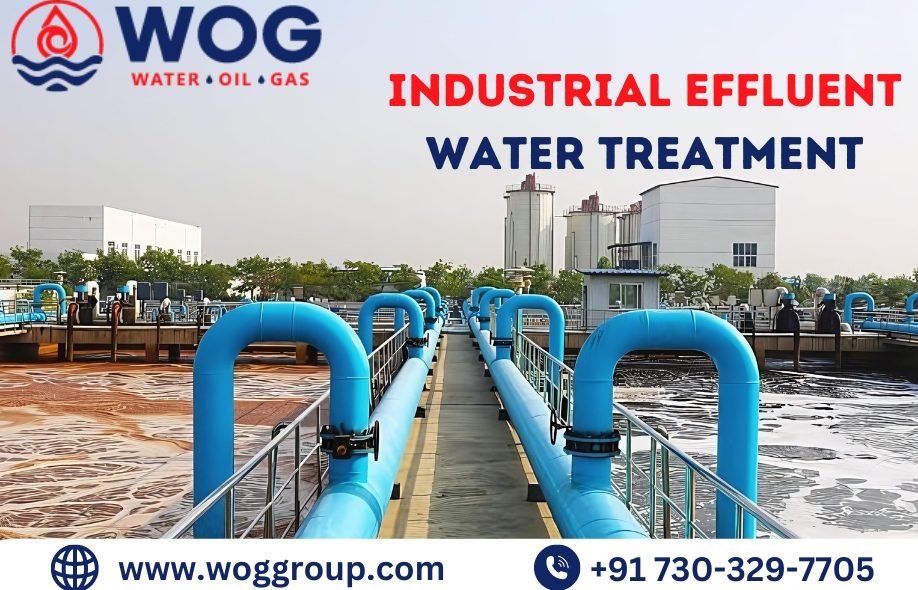By responsibly managing industrial wastewater, industrial effluent water treatment drives sustainable industry growth. Businesses across industries must handle industrial wastewater effectively due to water scarcity and environmental concerns. Companies may reduce their environmental impact, comply with rules, and improve their brand image by treating and managing industrial wastewater. Effective treatment procedures eliminate harmful pollutants and toxins from effluent, making it safe for aquatic life and water bodies. As many regions struggle with water scarcity, this is vital. Sustainable water management can also reduce water use in industrial buildings, saving money and improving efficiency. Industrial effluent water treatment is both environmental and business-critical. We will discuss sustainable wastewater management, treatment technology, and its benefits for businesses and the environment in this post.
Value of Sustainable Industry Growth
Sustainable industry growth is crucial nowadays. As wastewater treatment suppliers, we know industries must balance expansion with environmental responsibility. Economic development without harming the environment is sustainable growth.
Sustainable practices help businesses conserve resources, lessen their environmental impact, and build goodwill with their communities. Companies can gain customer and stakeholder trust by using sustainable strategies. In a changing market, this technique improves profitability and sustainability while helping the environment.
Environmental Impact of Untreated Industrial Effluent
- Untreated industrial wastewater harms the ecosystem. Without effective wastewater treatment, companies pollute rivers, lakes, and seas. This contamination can harm aquatic life and ecosystems.
- Heavy metals, chemicals, and organic materials in untreated sewage can kill fish and wildlife. These pollutants disturb food networks and decrease water quality, making it dangerous for drinking and recreation.
- Untreated sewage can also cause eutrophication, which causes algal blooms. These blooms deplete water oxygen, creating dead zones where aquatic life cannot thrive.
- Effective wastewater treatment is needed because untreated industrial effluent harms the environment. Industries that ignore this obligation hurt the environment and threaten their survival.
Rules for Industrial Effluent Water Treatment
Untreated industrial effluent is dangerous, according to governments worldwide. Therefore, strong laws and standards have been set to guarantee industries correctly manage wastewater.
Pollutant types and concentrations in waterways are limited by these restrictions, which vary by country and region. These requirements must be followed to preserve public health and the environment.
The US Environmental Protection Agency (EPA) mandates wastewater treatment before discharge. Noncompliance can lead to penalties, lawsuits, and brand damage. Many industries also implement voluntary standards like ISO 14001, which emphasizes environmental management systems. Companies can show their commitment to sustainability and improvement by following these guidelines.
Industrial Effluent Water Treatment Technologies
There are many ways to treat industrial wastewater. The proper strategy relies on wastewater type and pollutants. Some common treatments are:
Physical Therapy
Physical treatment methods remove wastewater solids and particles through screening, sedimentation, and flotation.
- Screening or sieving removes sticks and plastic.
- Sedimentation: Heavy sediments settle to the bottom of sedimentation tanks, generating extractable sludge.
Flotation: Air bubbles lift suspended materials to the surface for skimming.
Chemical Treatment
Chemical treatment uses chemicals to remove pollutants from wastewater. Common chemical treatments:
- Coagulation: Adding coagulants destabilizes suspended particles, making them clump for easy removal.
- Neutralization: Acid or base additions neutralize acidic or alkaline wastewater.
- Chlorine and ozone oxidize organic molecules and pathogens.
Biological Treatment
Biological wastewater treatment breaks down organic materials with bacteria. This method works for highly biodegradable garbage. Important biological processes:
- Activated Sludge Process: This popular approach aerates wastewater to generate organic matter-eating bacteria.
- Trickling Filters: Wastewater flows over a biofilm of microorganisms that decompose organic contaminants.
Advanced Treatment Technology
For contaminants that traditional procedures cannot remove, advanced treatment technologies are used. This includes:
- Membrane filtration: Microfiltration, ultrafiltration, and reverse osmosis separate impurities by size and charge.
- Advanced Oxidation Processes (AOPs): These processes produce reactive species that break down complex organic molecules, making them suitable for treating problematic wastewater.
Advantages of Industrial Effluent Water Treatment
Successful industrial effluent water treatment benefits enterprises and the environment. Some important benefits:
Ecological Protection
Environmental protection is the main benefit of processing industrial wastewater. Companies may protect ecosystems and water by eliminating contaminants before discharge.
Regulation Compliance
Companies can meet environmental standards by investing in wastewater treatment systems. This avoids legal penalties and boosts a company’s corporate citizenship.
Resource Recovery
Successful wastewater treatment can recoup resources. Reusing treated water for irrigation or industrial activities reduces freshwater use. Sludge nutrients can also be used as fertilizer.
Cost reduction
Treatment systems may cost initially, but they can save money over time. Water conservation, rubbish disposal, and fine avoidance can save a lot.
Better Reputation
Sustainable and environmentally responsible companies often have a good reputation. This can boost customer loyalty and stakeholder connections.
Efficiency in Operations
Modernizing wastewater treatment can boost efficiency. Process optimization and advanced monitoring systems reduce downtime and boost productivity.
Innovation and Growth
Companies become innovation leaders by adopting sustainable practices. Sustainability can create new markets and opportunities, boosting long-term growth.
Conclusion
Industrial responsibility has never been more important. As wastewater treatment suppliers, we at WOG Group believe industrial effluent water treatment is crucial for sustainable growth. By recognizing the environmental implications of untreated effluent, following rules, and using effective treatment systems, industries may protect the environment, meet standards, and reap many benefits. Investing in wastewater treatment plants is not merely a regulatory necessity; it is a commitment to a sustainable future for all. Together, we can ensure that industrial expansion does not come at the expense of our planet’s health. Embracing sustainable practices today will pave the path for a cleaner, greener tomorrow.
 :
https://in.pinterest.com/woggroupindia8/
:
https://in.pinterest.com/woggroupindia8/












